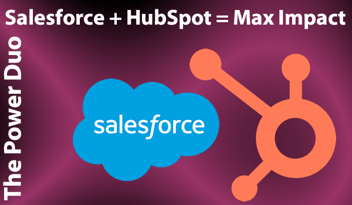Maximize Salesforce productivity with essential integrations: marketing automation, finance, e-commerce, customer service, collaboration, and social media. Streamline processes, and boost revenue.
As one of the most widely-used CRM platforms in the world, Salesforce offers an array of features and capabilities that allow businesses to streamline their sales processes and better serve their customers. However, to truly leverage the power of Salesforce, it is essential to integrate it with other key tools and systems. In this blog, we will explore some of the most important and useful integrations for Salesforce that can help businesses maximize their efficiency and productivity.
- Marketing Automation Integration: One of the most critical integrations for Salesforce is marketing automation software, such as Pardot, Marketo, or HubSpot. By integrating your marketing automation tool with Salesforce, you can gain insights into how your leads and customers interact with your marketing campaigns and sales processes. This integration can also help you streamline lead nurturing, automate email marketing, and create more targeted marketing campaigns based on customer data.
- Accounting and Finance Integration: Integrating Salesforce with accounting and finance tools like QuickBooks or Xero can help businesses streamline their financial processes, eliminate manual data entry, and improve the accuracy of their financial data. This integration can also help businesses gain a better understanding of their sales and financial data, such as revenue forecasting and sales commission tracking.
- E-Commerce Integration: Integrating Salesforce with e-commerce platforms like Shopify, Magento, or WooCommerce can help businesses streamline their sales processes, improve customer experience, and increase revenue. This integration can also help businesses gain a better understanding of their customer data, such as purchase history, abandoned carts, and order fulfillment.
- Customer Service Integration: Integrating Salesforce with customer service tools like Zendesk or Freshdesk can help businesses provide better customer service, increase customer satisfaction, and streamline support processes. This integration can also help businesses gain a better understanding of their customer data, such as support tickets, customer feedback, and response times.
- Collaboration Integration: Integrating Salesforce with collaboration tools like Slack or Microsoft Teams can help businesses improve communication and collaboration among their teams. This integration can also help businesses streamline workflows, increase productivity, and reduce errors by ensuring everyone is on the same page.
- Social Media Integration: Integrating Salesforce with social media platforms like Twitter, LinkedIn, or Facebook can help businesses monitor their brand reputation, engage with customers, and create targeted social media campaigns. This integration can also help businesses gain a better understanding of their social media data, such as engagement rates, follower growth, and social media reach.
In conclusion, integrating Salesforce with key tools and systems can help businesses maximize their efficiency, productivity, and revenue. By leveraging the power of these integrations, businesses can gain a better understanding of their customer data, streamline their sales processes, and improve collaboration and communication among their teams. So, if you want to take your Salesforce game to the next level, consider integrating it with these essential tools and systems.





Leave a Comment